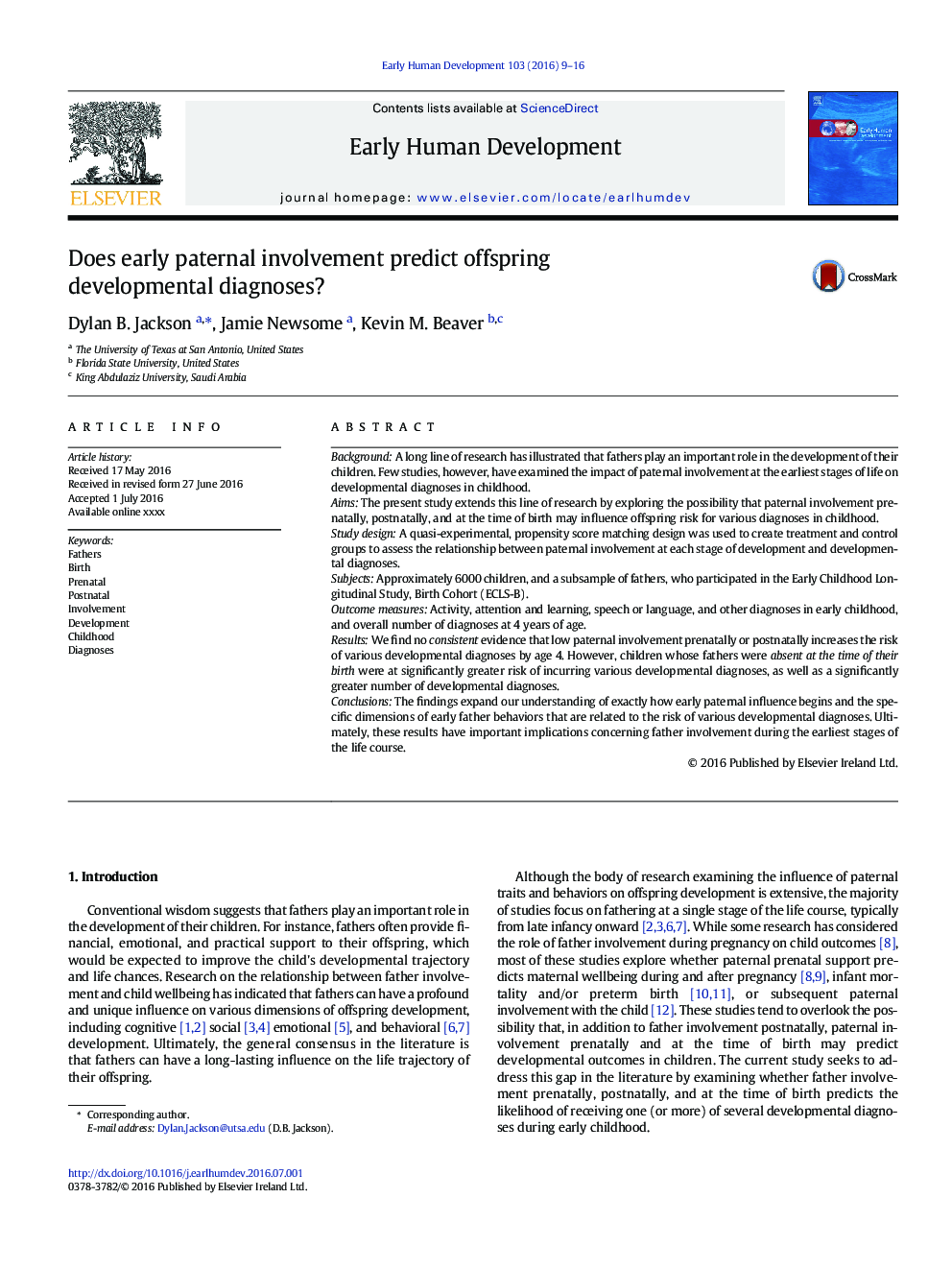| کد مقاله | کد نشریه | سال انتشار | مقاله انگلیسی | نسخه تمام متن |
|---|---|---|---|---|
| 3916362 | 1599463 | 2016 | 8 صفحه PDF | دانلود رایگان |
• Research has linked father behaviors to developmental outcomes in children.
• We examined early father involvement as a predictor of developmental diagnoses.
• Propensity score matching was employed to explore this relationship.
• Father absence at birth predicted developmental diagnoses before and after matching.
• The results buttress the role of father involvement during the earliest stages of life.
BackgroundA long line of research has illustrated that fathers play an important role in the development of their children. Few studies, however, have examined the impact of paternal involvement at the earliest stages of life on developmental diagnoses in childhood.AimsThe present study extends this line of research by exploring the possibility that paternal involvement prenatally, postnatally, and at the time of birth may influence offspring risk for various diagnoses in childhood.Study designA quasi-experimental, propensity score matching design was used to create treatment and control groups to assess the relationship between paternal involvement at each stage of development and developmental diagnoses.SubjectsApproximately 6000 children, and a subsample of fathers, who participated in the Early Childhood Longitudinal Study, Birth Cohort (ECLS-B).Outcome measuresActivity, attention and learning, speech or language, and other diagnoses in early childhood, and overall number of diagnoses at 4 years of age.ResultsWe find no consistent evidence that low paternal involvement prenatally or postnatally increases the risk of various developmental diagnoses by age 4. However, children whose fathers were absent at the time of their birth were at significantly greater risk of incurring various developmental diagnoses, as well as a significantly greater number of developmental diagnoses.ConclusionsThe findings expand our understanding of exactly how early paternal influence begins and the specific dimensions of early father behaviors that are related to the risk of various developmental diagnoses. Ultimately, these results have important implications concerning father involvement during the earliest stages of the life course.
Journal: Early Human Development - Volume 103, December 2016, Pages 9–16
